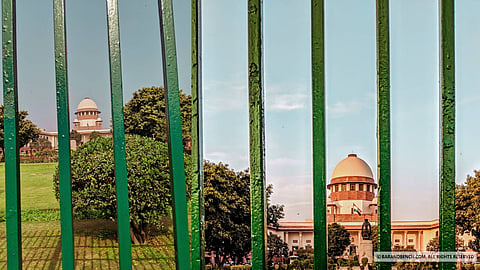
- News
- Columns
- Interviews
- Law Firms
- Apprentice Lawyer
- Legal Jobs
- हिंदी
- ಕನ್ನಡ

The Supreme Court on Monday noted that for the maintainability of a Habeas Corpus petition, it is mandatory that the aspect of illegal detention of the concerned person is proved (Kailas Natarajan v. District Police Chief).